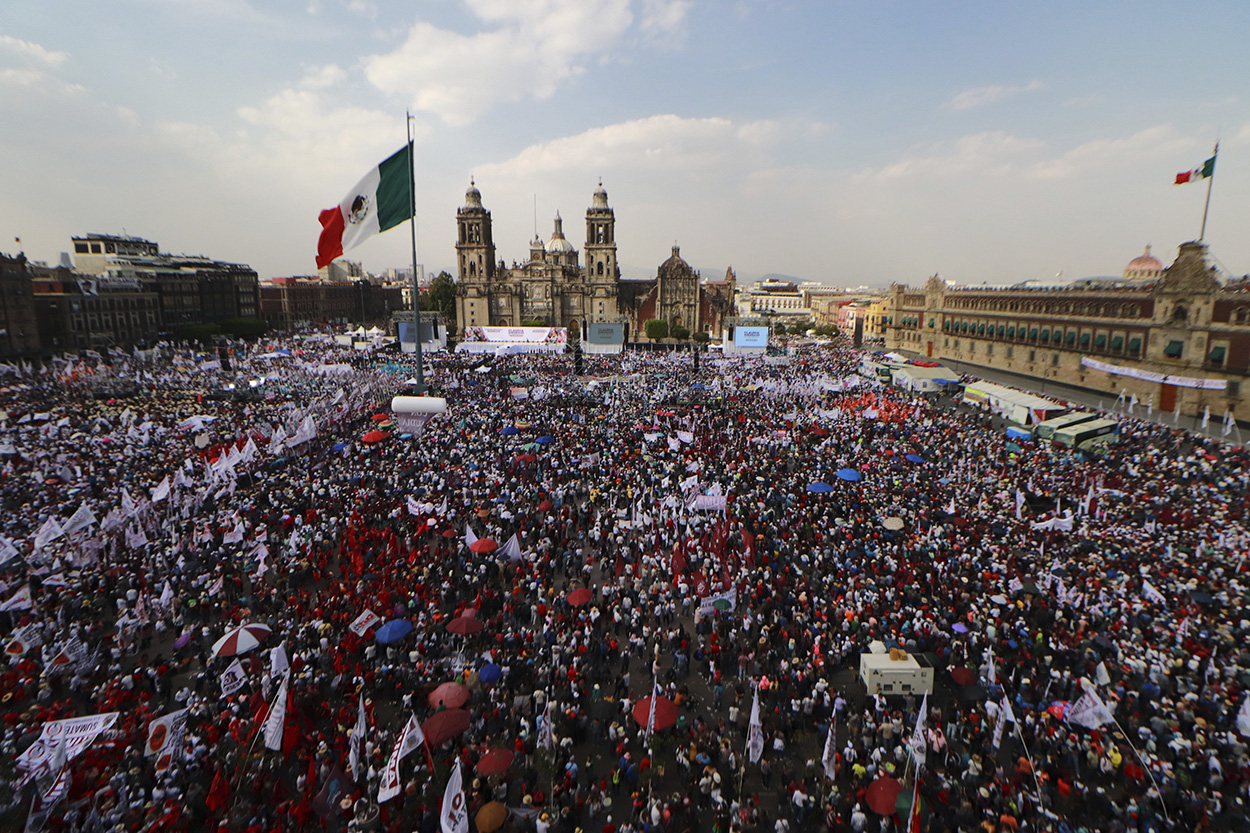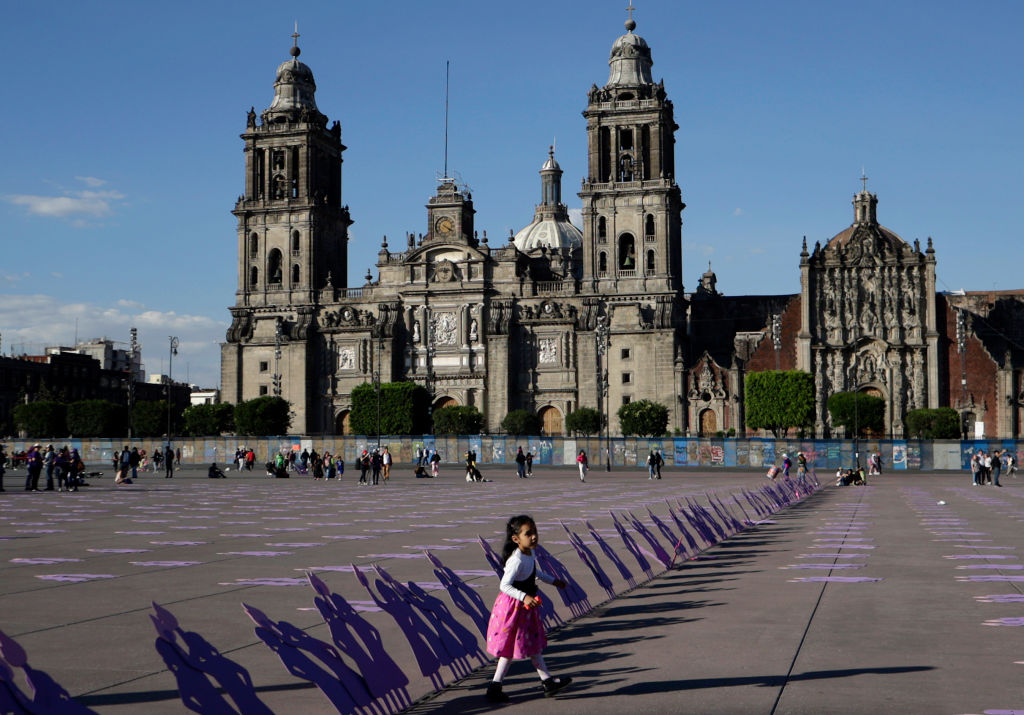In March Visit to Honduras and Mexico, Biden Seeks to Build Cooperation
In March Visit to Honduras and Mexico, Biden Seeks to Build Cooperation
U.S. Vice President Joe Biden will travel to Mexico and Honduras next month ahead of April’s Summit of the Americas.
Mexico and Honduras will host U.S. Vice President Joe Biden from March 6 to 8. The trip is the vice president’s second to the region since taking office in 2008, with a 2009 trip bringing him to Chile and Costa Rica. His past trip focused on developing a response to the global economic crisis and renewing the U.S. ties with the region. This time around, Biden’s tour will center on forging commonalities ahead of this April’s Summit of the Americas, particularly in light of regional friction over whether Cuba will be invited to attend. His trip also comes on the heels of recent energy and environmental accords with Mexico and amid Central American debate over how to resolve violence linked to narcotrafficking.
Biden will begin the visit in Mexico, where he will “underscore the United States’ commitment to deepening [its] close dialogue and cooperation with Mexico on a broad range of issues,” says a White House release. One new area of cooperation involves a bilateral energy agreement that ends the moratorium on exploration in the western Gulf of Mexico. Inked on the sidelines of a February 18 to 20 meeting of foreign ministers in Los Cabos, the accord permits joint exploration deals between U.S. energy companies and Mexican state oil company Pemex. Both sides welcomed the agreement, with U.S. Secretary of State Hilary Clinton calling it a “win-win” deal. But a majority of Mexicans oppose foreign involvement in the Mexican oil industry—a 2012 poll put opposition at 61 percent—and the issue of energy reform to allow private-sector involvement remains a contentious one. As such, Mexican President Felipe Calderón was quick to defend the deal, releasing a statement saying “this agreement was negotiated under the invariable principle of respecting the sovereign rights of each country to its natural resources…Mexico’s oil wealth belongs and will continue to belong to the Mexicans.”
On top of the energy agreement, the United States and Mexico came together on climate change in recent weeks. U.S. Secretary of State Hillary Clinton announced on February 16 Mexico’s participation—along with Bangladesh, Canada, Ghana, Sweden, and the United States—in the Climate and Clean Air Coalition, aimed at reducing short-lived greenhouse gas emissions. Mexico’s involvement could give it significant leverage at this June’s Rio+20 Earth Summit, says the National Resource Defense Council’s Switchboard blog.
Biden visits Honduras at a time when the country finds itself battling severe problems with public safety and violence. In 2011, the country registered the world’s highest murder rate, spurred by expanding cocaine trafficking and organized crime in Honduras. The U.S. vice president could find himself drawn into discussions linked to the regional drug-policy debate; in addition to meeting with Honduran President Porfirio Lobo, Biden will attend a meeting of leaders from Central American Integration System countries, with Honduras as the pro-tempore leader of that body. In recent weeks Guatemala’s President Otto Pérez Molina and El Salvador’s President Mauricio Funes raised the idea of drug legalization as a path to decrease violence (Funes subsequently modified his stance). On Thursday, Mexican Secretary of Foreign Relations Patricia Espinosa said Mexico was open to being involved in a regional debate about the drug legalization, though she cautioned that the Mexican government does not believe legalization will put a stop to narcotrafficking.
Throughout his trip, Biden will also seek to build common positions before the upcoming Summit of the Americas, which takes place in Cartagena, Colombia in April. The summit, which will focus on regional integration and cooperation, already faces divisions. Bolivarian Alliance (ALBA) members threatened to boycott the event if Cuba is not invited, while U.S. Congressional Republicans urged the president to boycott the summit if Cuba attends. Moreover, five Latin American countries—Bolivia, Cuba, Ecuador, Nicaragua, and Venezuela—were among only 12 countries that voted against a UN resolution condemning human rights violations in Syria last week. Writing on the issue in The Miami Herald, the Army War College’s Gabriel Marcella writes: “As the presidents gather at Cartagena, they must commit to strengthening the splendid foundation erected long ago and continue to advance the unique Latin American contribution to international peace and human dignity.”
Learn More:
- Read an article by AS/COA’s Christopher Sabatini in Foreign Affairs on reorienting U.S. policy toward Latin America.
- Access AS/COA’s Mexico blog, for the annual Mexico City Conference entitled “Mexico and the G20: Rethinking Global Economic Balance,” to be held March 13 in Mexico City.
- Access the White House press release announcing Biden’s visit.
- Visit Vice President Joe Biden’s official website.
- Read more about the Summit of the Americas via its website.







